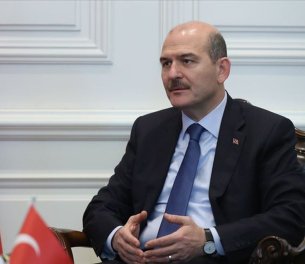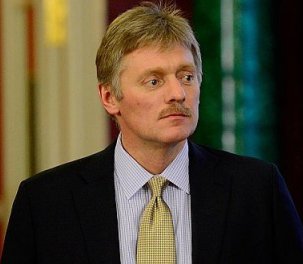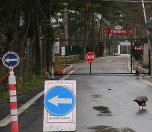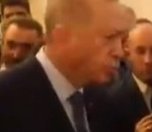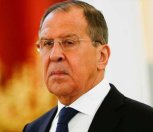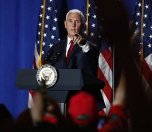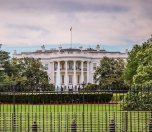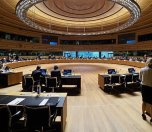Click to read the article in Turkish / Kurdish
President Recep Tayyip Erdoğan said last night (October 15) that Turkey could send the captured ISIS fighters to their home countries, suggesting that this will make them "scared".
"France will say 'Don't send'. Germany will say 'Don't send'. We will try them in court we will establish in prisons.
"They pressure us to halt the operation, announce sanctions," he said, referring to Western countries.
"Our goal is clear. We are not worried over any sanctions," Erdoğan asserted, adding that the US urged Turkey to declare a ceasefire so it could act as a mediator between the conflicting parties, but he rejected this offer, as Turkey would not "sit down at the table with terror groups."
Erdoğan went on to say that US mediation between Turkey and the SDF terror group would not be reasonable in terms of political science and war law.
Emphasizing that Turkey would maintain its operation until the area was cleared of terror elements, he said the territory would be given back to its true owners once the operation concluded.
"We are on the seventh day of Operation Peace Spring. It continues with success as planned. We secured Ayn al-Arab on the fourth day and Tal Abyad on the fifth day by purging terrorists. Today, we have reached a 32-kilometer depth. We have control over the M4 highway," he said.
Casualties
The president said a total of "611 terrorists had been neutralized so far, with 556 of them killed", whereas the Turkish army and the Syrian National Army (SNA) have had four and 32 losses respectively.
He underlined that the US, Russia, the European Union and NATO were briefed on Turkey's actions and goals regarding the ongoing operation and added that Turkey's operational success in northern Syria went beyond foreign countries' expectations as Turkey secured a significant portion of northern Syria within a week.
"Our goal is clear: cleaning our borders of any terror elements and ensuring the safe return of the refugees... The operation will continue until the goals are achieved," he added.
Civilian losses
Erdoğan said the Turkish Armed Forces (TAF) exercised great caution so they would not harm civilians.
"Unfortunately, the Western countries always ignored [civilian losses] and never talked about these. Now, they are trying to pressure us. Our operation had and has been against the terror groups," he said.
While Turkey is ultra-sensitive with civilians, the SDF terror group pursues a completely opposite policy as it has targeted southern Turkish provinces with some 700 mortar rounds that killed 18 civilians, including an infant, according to Erdoğan
He said some people argued that the operation was against the Kurdish population and targeted civilians, that it would undermine the fight against ISIS members and pave the way for destabilization, but these are baseless arguments actually sought to protect SDF terrorists.
"Our goal is clear: it is to make terrorists leave the 32-kilometer-long territory, and this [operational] line is secured by us, from the Euphrates River to the Iraqi border."
Manbij and the Syrian government
Erdoğan said the Bashar al-Assad government's entrance into Manbij province was not really negative for him, as the territory fell under Syrian sovereignty. But he added that the area must be rid of SDF and the local population is mostly comprised of Arabs, and some of the Arab tribes urged Turkey to "save them."
He pointed out that one of the Turkish soldiers lost his life in Manbij following Syrian army attacks and the TAF responded with heavy artillery fire that "made the regime pay."
Kobani
Erdoğan criticized the former US administration of Barrack Obama for not being sincere in its policy in Kobani, and stressed that Turkey had welcomed some 300 thousand Kurdish refugees who abandoned their homes due to terrorism a few years back but Western media outlets never mentioned this fact and depicted Turkey as murderers of the Kurdish people.
He added that US President Donald Trump urged Turkey "not to hit" Kobani and Turkey only engaged in a containment operation in the territory but it could intervene if there was a "different development."
He stressed that Ankara did not want to target Kurdish people or civilians but sought to secure Kobani, adding the anti-terror operation would contribute to the political solution process in Syria.
When asked whether Ayn al-Arab was included in the safe zone plans, he responded: "Of course. Because it has a strategic importance due to its past. They [SDF] hit us from there."
Sanctions on military equipment
"Turkey is now a self-sufficient country," he said, adding the country is currently able to meet 70% of its needs through its own defense industry.
Recalling when Turkey purchased Russia's S-400 missile system after the US rejected selling it its Patriot defense system, he said: "There is no more desperation...You can buy anything from anywhere."
Erdoğan went on to slam the European countries that suspended arms exports to Turkey and said Turkey was already offered alternative options.
Adana agreement
Erdoğan stressed that Turkey's "fight against terrorism" in Syria was based on the Adana Agreement and all NATO members should stand with Turkey in line with Article 5 of the NATO treaty.
The Adana Agreement was signed in 1998 and allows Turkish Armed Forces to conduct military operations in Syria.
Opposition parties
The Republican People's Party (CHP), Nationalist Movement Party (MHP) and Iyi Party (IP) support the counterterror operation against the SDF, said Erdoğan.
He added that Defense Minister Hulusi Akar briefed all these parties regarding the latest developments of the operation and thanked them for their national solidarity.
The Turkish leader said US Vice President Mike Pence and an accompanying delegation would visit Turkey to discuss the latest developments regarding the counterterror operation.
"I wish that tomorrow's talks will bode well for us," he said, adding Turkey was also closely in touch with Russian officials.
Turkey launched Operation Peace Spring on Oct. 9 to eliminate the SDF from northern Syria. (TP/VK)





